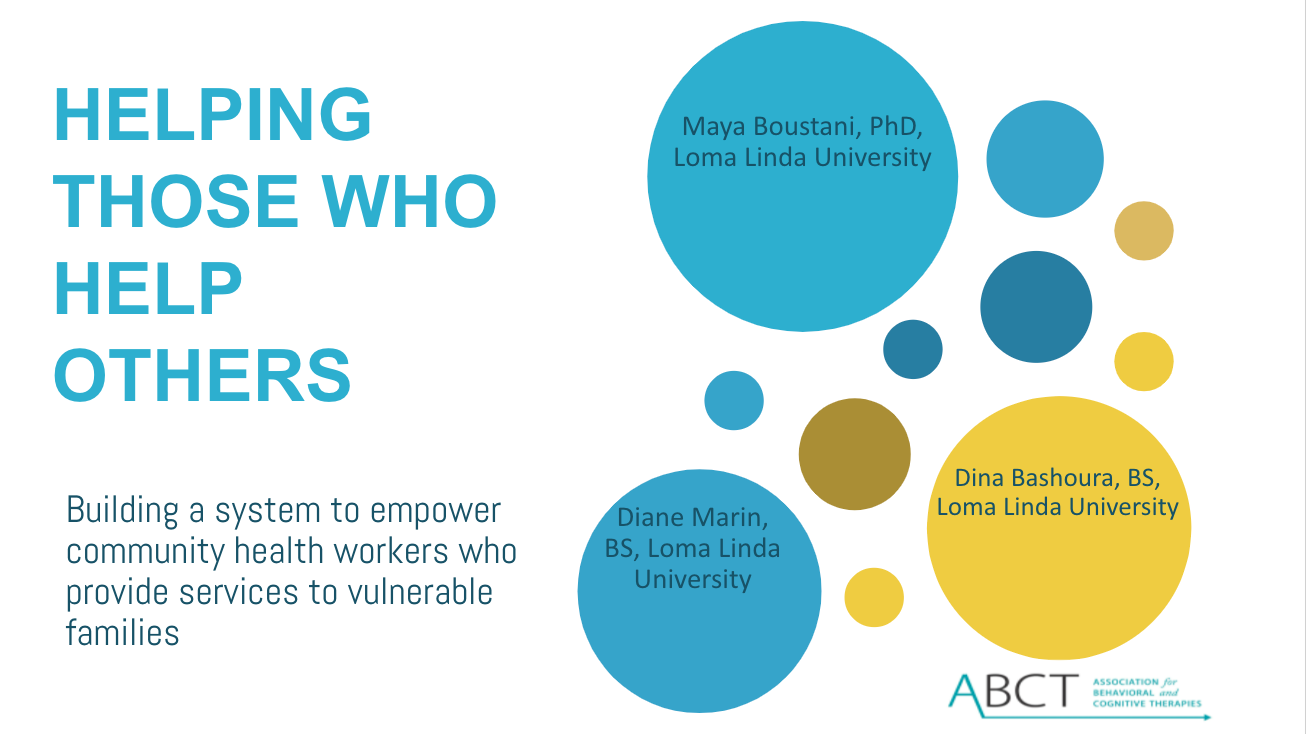Helping those who help others: Building a system to empower community health workers who provide services to vulnerable families

Background: CHWs have been hailed as one of the solutions to the growing disparities in access to mental health treatment both nationally and internationally (Barnett et al., 2018). As frontline lay health workers who are members of the communities they serve (Viswanatha et al. 2010), CHWs have an acute understanding of their clients’ specific life stressors and circumstances. Despite their more limited academic preparation, we expect CHWs to perform similar tasks (i.e., deliver an evidence-based practice) as community-based providers who are highly trained (usually masters-level clinicians) with populations that are severely underserved. As such, the very nature of their role puts them at heightened risk for feeling under-prepared, unclear about the boundaries of their roles, and insecure about their clinical decision-making. As a result, many are highly stressed and at-risk for higher job turnover. Methods: This project seeks to understand CHW’s needs and use that knowledge to develop and test ECHOES - a training and supervision system to empower CHWs in their effective use of the evidence base while supporting their wellbeing. These efforts are guided by the EPIS (Exploration, Preparation, Implementation, Sustainment) framework (Aarons, 2011). Results: A focus group with six CHWs who provide home-based mental health support to reduce chronic school absenteeism in an underserved community revealed that CHWs feel ill-equipped to handle the overwhelming needs of families they serve; struggle to identify which strategy to use under which circumstances; have difficulty knowing the extent of their role, and are highly stressed. Based on these findings, our knowledge of the evidence base and active input from CHWs, we are developing “ECHOES” Empowering Community Health wOrkers with Education and Supervision. ECHOES provides CHWs with(1) distilled content derived from the mental health literature that can be delivered efficiently; (2) a decision-making support system to assist CHWs in determining which content to deliver at what time and when to refer; (3) a stress management support system to support CHW well-being. Future Directions: Efforts are underway to implement and test ECHOES to determine its feasibility, acceptability, promise, and utility as well as ensure it is sustainable without research support.
Keywords: Community-Based Assessment / Intervention, Supervision



